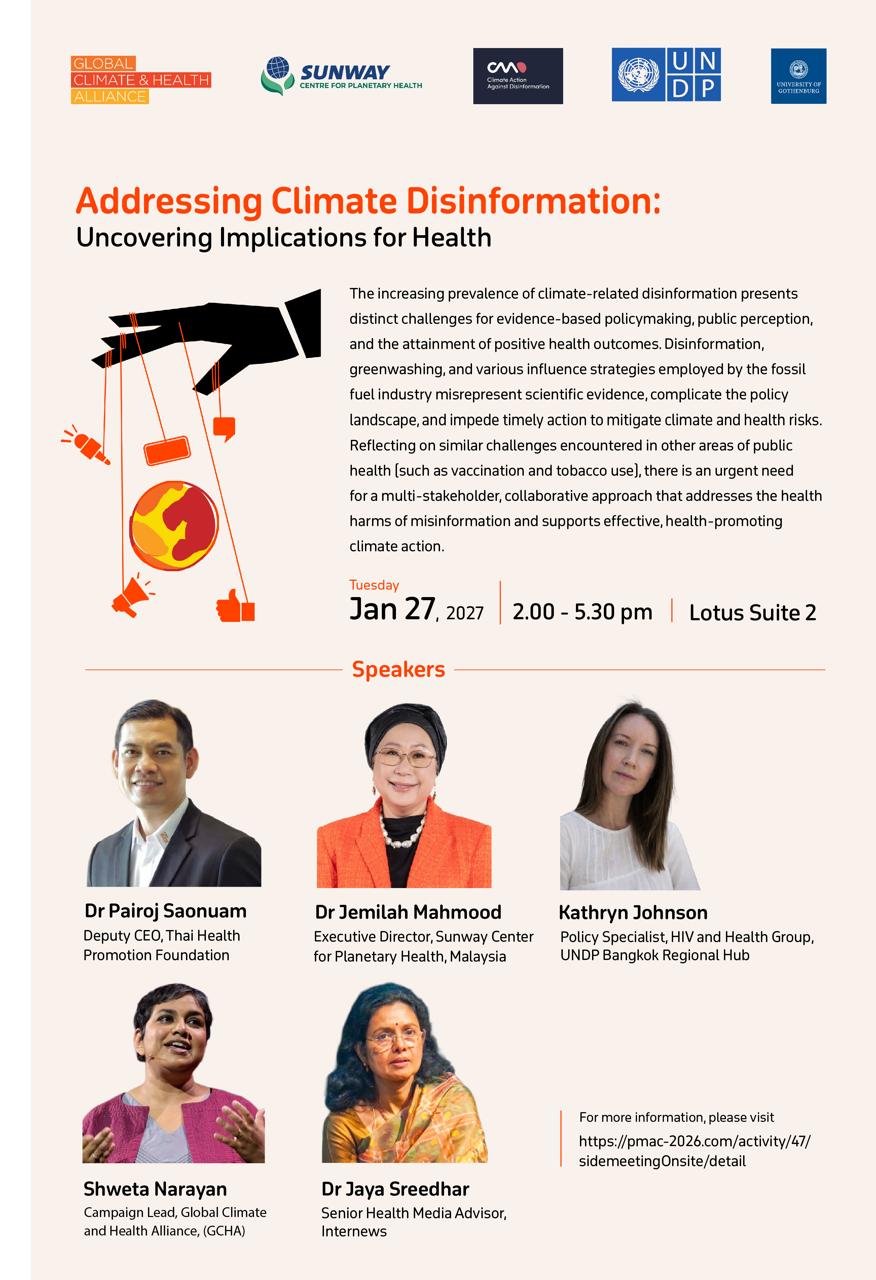Side Meetings
SMB303
Addressing Climate Disinformation – Uncovering Implications for Health
27
Jan
Organizers
- Global Climate and Health Alliance
- University of Gothenburg
- UNDP
- Sunway Center for Planetary Health
- Climate Action Against Disinformation

The increasing prevalence of climate-related disinformation presents distinct challenges for evidence-based policymaking, public perception, and the attainment of positive health outcomes. Disinformation, greenwashing, and various influence strategies employed by the fossil fuel industry misrepresent scientific evidence, complicate the policy landscape, and impede timely action to mitigate climate and health risks. Reflecting on similar challenges encountered in other areas of public health (such as vaccination and tobacco use), there is an urgent need for a multi-stakeholder, collaborative approach that addresses the health harms of misinformation and supports effective, health-promoting climate action.
- Facilitate dialogue and exchange of experiences among public health professionals, climate and environmental experts, media representatives, and information integrity organizations on the impacts and mitigation of climate-related disinformation;
- Identify and discuss mechanisms and collaborative strategies for improving detection, analysis, and response to climate disinformation as it relates to public health, drawing lessons from previous misinformation campaigns;
- Explore effective pathways for accurate public communication, including the co-production of accessible information relevant to policymaking and the general public;
- Strengthen partnerships across the health, climate, and media communities to enhance collective capacity for addressing information integrity challenges in climate discourse.

